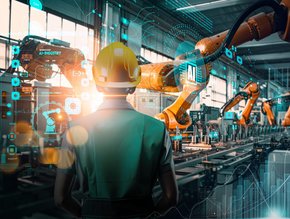Smurfit Kappa has reduced CO2 emissions by 26% before 2020 deadline

The Irish packaging company, Smurfit Kappa, has announced that it has cut its CO2 emissions by 26% ahead of its 2020 deadline.
According to its annual Sustainable Development Report, the firm reached the target three years ahead of schedule, at the end of 2017.
Despite the company’s paper packaging being renewable and recyclable, the process of producing the products requires a lot of energy.
In order to meet the goal, Smurfit Kappa focused on energy efficiency and using renewably-sourced fuels, such as biomass.
The firm has five key areas its focusing on for sustainable changes in it report: climate change, forest, water, waste, and people.
“2017 was yet another year with a strong performance on sustainability metrics for Smurfit Kappa and I am confident this will continue into the future,” stated Tony Smurfit, CEO of Smurfit Kappa.
SEE ALSO:
“In the next five years we plan to allocate significant capital to projects that will contribute further towards lowering our environmental footprint and we will continue to invest significant resources in the development, safety and wellbeing of our people.”
“This report is also evidence of our industry-leading transparency and demonstrates how Smurfit Kappa is making progress in supporting the UN’s 2030 Sustainability Development Goals.”
“This report is also evidence of our industry-leading transparency and demonstrates how Smurfit Kappa is making progress in supporting the UN’s 2030 Sustainability Development Goals,” added Steven Stofefr, Group Vice President of Development at Smurfit Kappa.
“For Smurfit Kappa, sustainability is not only about mitigating climate change and reducing inefficiency.”
“For packaging to be truly sustainable, it must be produced and designed in a sustainable fashion and be biodegradable within a relatively short time after multiple usages. This results in minimal impact on the planet.”
- GE Vernova moves to Electrify and Decarbonise the WorldTechnology
- GTK: IoT, Sustainability & Touchscreen Tech in ManufacturingAI & Automation
- The Impact of NCSA on Manufacturing & the Supply ChainProcurement & Supply Chain
- Grundfos' Sustainable Manufacturing & Energy EfficiencySustainability & ESG






